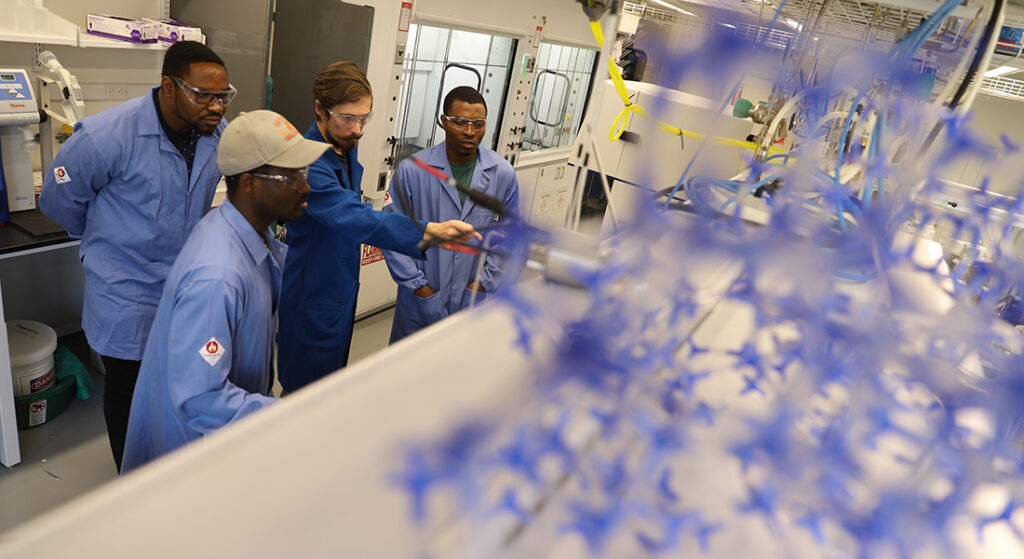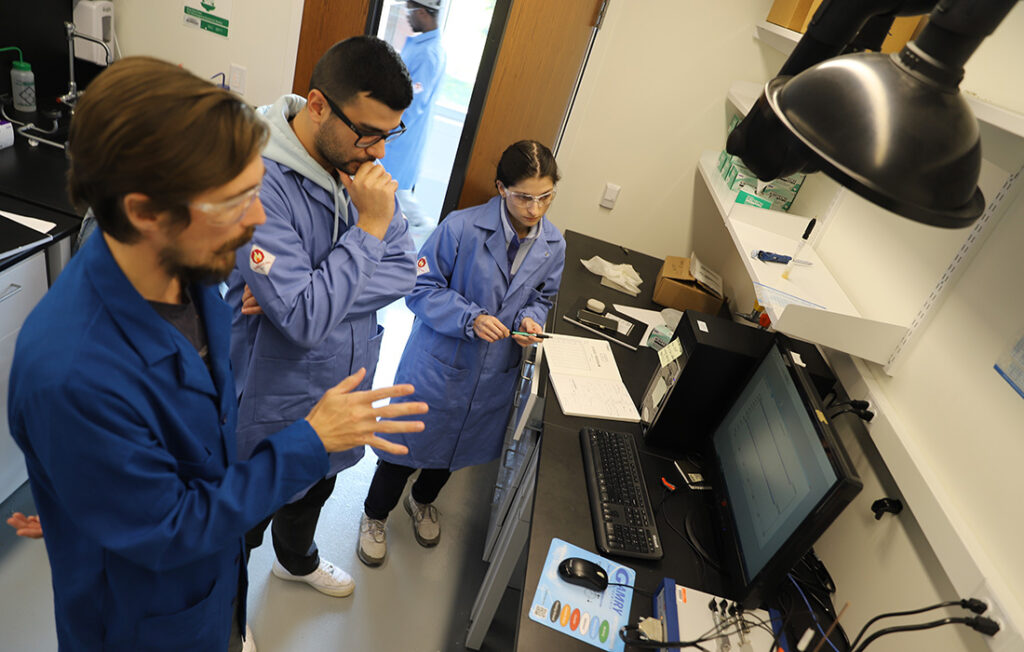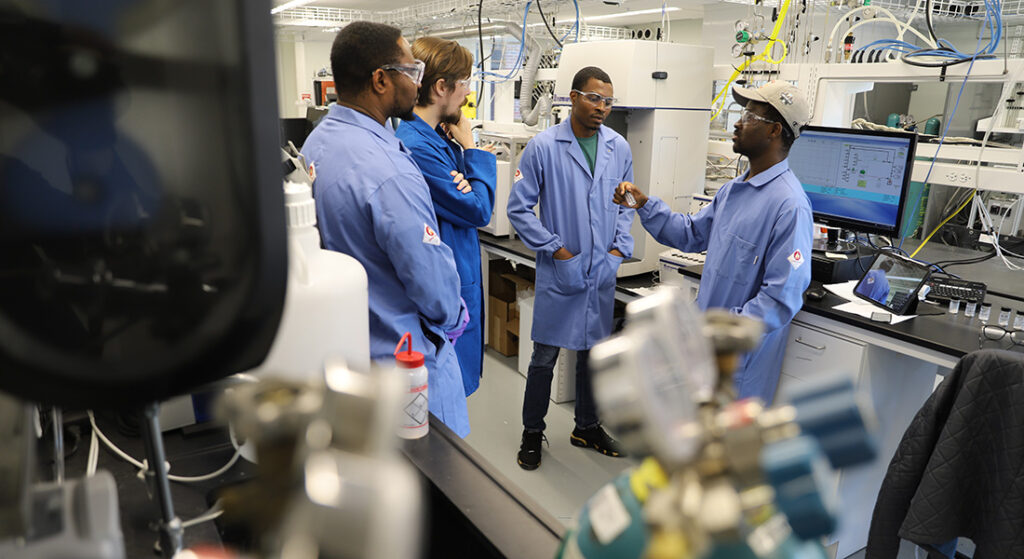
Catalytic materials are defined as substances that speed up a chemical reaction without being changed in the process and many products that exist today are only possible because of catalysts. In fact, hundreds of catalytic materials are discovered or created each year, yet only a small number of them are commercialized. This is because many catalytic materials aren’t stable and break down over time, making them difficult to study and use.
The stability of catalytic materials is what motivates Biomedical and Chemical Engineering Professor Theodore Walker and his research team’s work. In his lab, they’re attempting to create new, stable catalysts for renewable energy products.
“Catalytic materials need to last for two to three years minimum without being replaced. The timescales we can readily access in the lab are about 24 hours or weeks at most,” says Walker. “That makes probing catalyst deactivation behavior and exploring all the physical processes that govern that deactivation difficult. Our goal is to test the activity and stability of catalytic materials to transform raw materials into products and leverage these insights to invent more robust and stable catalytic processes.”
One project Walker and his research group are working on is changing the molecular structures of molecules taken from biomass, organic materials made from plants and animals. Using acid catalysts, they can create entirely new substances from these molecules. For example, the molecule hydroxymethylfurfural (HMF), which is created from fructose, or plant sugar, can be turned into bio-degradable plastics when its molecular structure is changed.
However, the process of making HMF from fructose isn’t efficient. Once the acid catalyst creates an HMF molecule from fructose, the same acid quickly degrades HMF into other molecules. Walker and his team will conduct research to change the molecular structure of biomass molecules and stabilize these catalysts. “In my lab, we’re decorating catalysts with polymers to protect them from deactivation or steer them to selectivity towards the products we want,” he says.

Another project Walker and his team are working on involves pyrolysis. Pyrolysis is the process of heating an organic material without oxygen to initiate a chemical change. This process can be used to create eco-friendly biofuels that are similar to gasoline. Though this biofuel has promising potential, it runs into the same problems as HMF: catalyst instability. Biomass contains calcium, potassium, and other metals that cause catalyst instability, so Walker and his team are exploring ways to make more stable catalysts for biomass pyrolysis.
“The catalyst deactivates in the presence of alkaline metals like calcium and potassium which crude oil has none of, but biomass has plenty of it,” says Walker. “We’re exploring strategies to prevent the alkali metal poisons from entering the pore structure or render them in a form where poison can be easily recovered.”
The Walker lab’s third project involves electrochemistry, a process where chemical reactions are driven by electricity rather than high temperatures. Walker’s team is working on creating stable electrodes, or electrical conductors, to produce renewable electricity and hydrogen fuel through water splitting, which involves breaking water down into oxygen and hydrogen gas.
“If you apply a voltage of greater than one volt across two platinum electrodes in an alkali aqueous solution, it will split the water apart into hydrogen and oxygen, which is zero-carbon fuel, and you can harvest electricity from this process as well,” says Walker. “But platinum is expensive. It would be great to use cheaper materials like iron, tin, or cobalt. However, the iron electrode rusts when placed in an alkali solution and oxidation occurs. We want to make electrodes more stable and use the same electrode formulations to oxidize molecules into carboxylic acids, a high-value molecule.”
By studying catalytic materials, Walker and his team hope that their research will have a massive impact on renewable energy resources. “Catalyst deactivation represents a real bottleneck in our technology-development pipeline. I can name a handful of promising technologies that, if broadly implemented, could be transformative; yet they haven’t because conventional catalysts aren’t stable,” Walker says. “If we could learn something new about what governs the catalyst degradation processes, that could be very impactful.”

